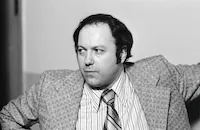Miracle Beach
Brief Synopsis
Cast & Crew
Skott Snider
Monique Gabrielle
Ami Bluebell Dolenz
Gary Grant
Brian Perry
Felicity Waterman
Film Details
Synopsis
A down-on-his-luck yuppie-to-be discovers a magic lamp that grants all his superficial wishes, but in the end it is true love that becomes most important to him.
Director
Skott Snider
Cast
Monique Gabrielle
Ami Bluebell Dolenz
Gary Grant
Brian Perry
Felicity Waterman
Martin Mull
Dean Cameron
Pat Morita
Vincent Schiavelli

Allen Garfield
Sydney Lassick
Alexis Arquette
Crew
Eric Allaman
Amy Ancona
Scott Bindley
Michelangelo Csaba Bolla
Ashley Friedman
Tracie Graham
John Hartigan
Emma E. Hickox
Brad Jenkel
Brad Krevoy
Peter Meiselmann
Paul Miller
Ed Mitchell
Lawrence Morgan
Gary Randall
Robin Ray
Kathrin Rickenbach
Bernard Salzmann
Julia Schklair
Steve Stabler
Maria Theologitis
Film Details
Articles
Pat Morita (1932-2005)
He was born Noriyuki Morita on June 28, 1932 in Isleton, California. The son of migrant fruit pickers, he contracted spinal tuberculosis when he was two and spent the next nine years in a sanitarium run by Catholic priests near Sacramento. He was renamed Pat, and after several spinal surgical procedures and learning how to walk, the 11-year-old Morita was sent to an internment camp at Gila River, Arizona, joining his family and thousands of other Japanese-Americans who were shamefully imprisoned by the U.S. government after Japan’s attack on Pearl Harbor.
His family was released after the war, and Morita graduated from high school in Fairfield, California in 1950. He worked in his family's Chinese restaurant in Sacramento until his father was killed in a hit-and-run accident. He eventually found work as a data processor for the Department of Motor Vehicles and then Aerojet General Corporation before he decided to try his hand at stand-up comedy.
He relocated to San Francisco in 1962, where at first, there was some hesitation from clubs to book a Japanese-American comic, but Morita's enthusiasm soon warmed them over, and he was becoming something of a regional hit in all the Bay Area. His breakthrough came in 1964 when he was booked on ABC's The Hollywood Palace. The image of a small, unassuming Asian with the broad mannerisms and delivery of a modern American was something new in its day. He was a hit, and soon found more bookings on the show. And after he earned the nickname "the hip nip," he quickly began headlining clubs in Las Vegas and Los Angeles.
Morita's stage and television success eventually led him to films. He made his movie debut as "Oriental #2," the henchman to Beatrice Lilly in the Julie Andrew's musical Thoroughly Modern Millie (1967). Although his role, complete with thick coke-bottle glasses and gaping overbite, was a little hard to watch, it was the best he could do at the time. Subsequent parts, as in Don Knott's dreadful The Shakiest Gun in the West (1968); and Bob Hope's lamentable final film Cancel My Reservations (1972); were simply variations of the same stereotype.
However, television was far kinder to Morita. After some popular guest appearances in the early '70s on Rowan & Martin's Laugh-In, and The Tonight Show with Johnny Carson, Morita landed some semi-regular work. First, as the wisecracking, cigar chomping Captain Sam Pack on M.A.S.H. and as Ah Chew, the deadpan neighbor of Fred and Lamont Sanford in Sanford & Son. His success in these roles led to his first regular gig, as Arnold Takahashi in Happy Days. His stint as the owner of the soda shop where Ritchie Cunningham and the Fonz hung out for endless hours may have been short lived (just two seasons 1974-76), but it was Morita's first successful stab at pop immortality.
He left Happy Days to star in his own show, the critically savaged culture clash sitcom Mr. T and Tina that was canceled after just five episodes. Despite that setback, Morita rebounded that same year with his first dramatic performance, and a fine one at that, when he portrayed a Japanese-American internment camp survivor in the moving made for television drama Farewell to Manzanar (1976). After a few more guest appearances on hit shows (Magnum P.I., The Love Boat etc.), Morita found the goldmine and added new life to his career when he took the role of Miyagi in The Karate Kid (1984). Playing opposite Ralph Macchio, the young man who becomes his martial arts pupil, Morita was both touching and wise, and the warm bond he created with Macchio during the course of the film really proved that he had some serious acting chops. The flick was the surprise box-office hit of 1984, and Morita's career, if briefly, opened up to new possibilities.
He scored two parts in television specials that were notable in that his race was never referenced: first as the horse in Alice in Wonderland (1985); and as the toymaster in Babes in Toyland (1986). He also landed a detective show (with of course, comic undertones) that ran for two seasons Ohara (1987-89); nailed some funny lines in Honeymoon in Vegas (1992); was the sole saving grace of Gus Van Zandt's Even Cowgirls Get the Blues (1993); and starred in all of the sequels to The Karate Kid: The Karate Kid, Part II (1986), The Karate Kid, Part III (1989), and The Next Karate Kid (1994). Granted, it is arguable that Morita's career never truly blossomed out of the "wise old Asian man" caricature. But give the man his due, when it came to infusing such parts with sly wit and sheer charm, nobody did it better. Morita is survived by his wife, Evelyn; daughters, Erin, Aly and Tia; his brother, Harry, and two grandchildren.
by Michael T. Toole

Pat Morita (1932-2005)
Quotes
Trivia
Miscellaneous Notes
Released in United States on Video September 16, 1992
Released in United States Winter January 1, 1992
Feature film directorial debut for commercial director Skott Snider.
Began shooting August 19, 1991.
Completed shooting September 16, 1991.
Ultra-Stereo
Released in United States Winter January 1, 1992
Released in United States on Video September 16, 1992













